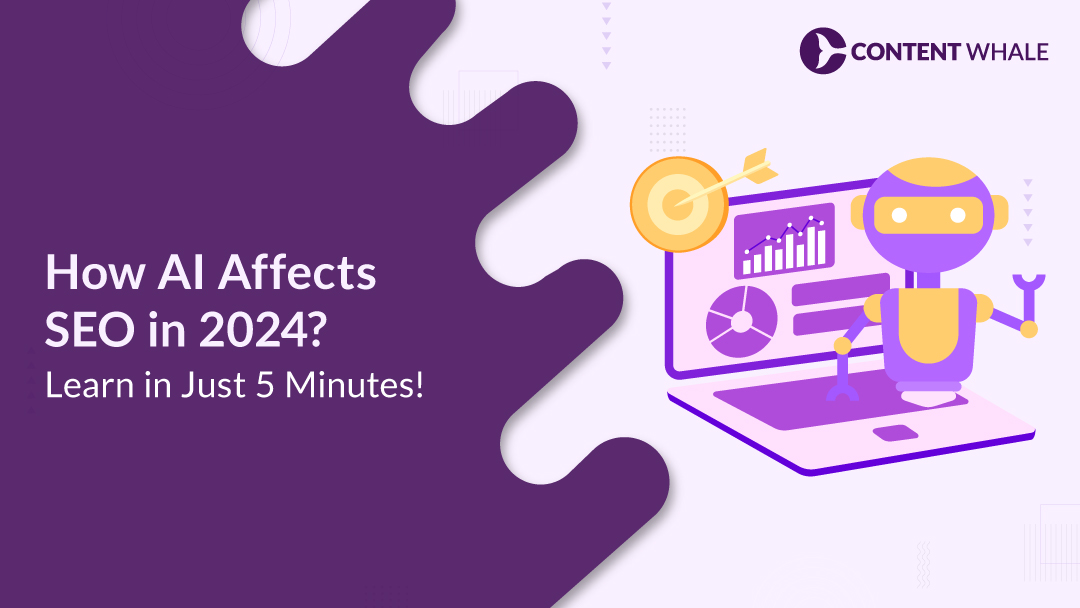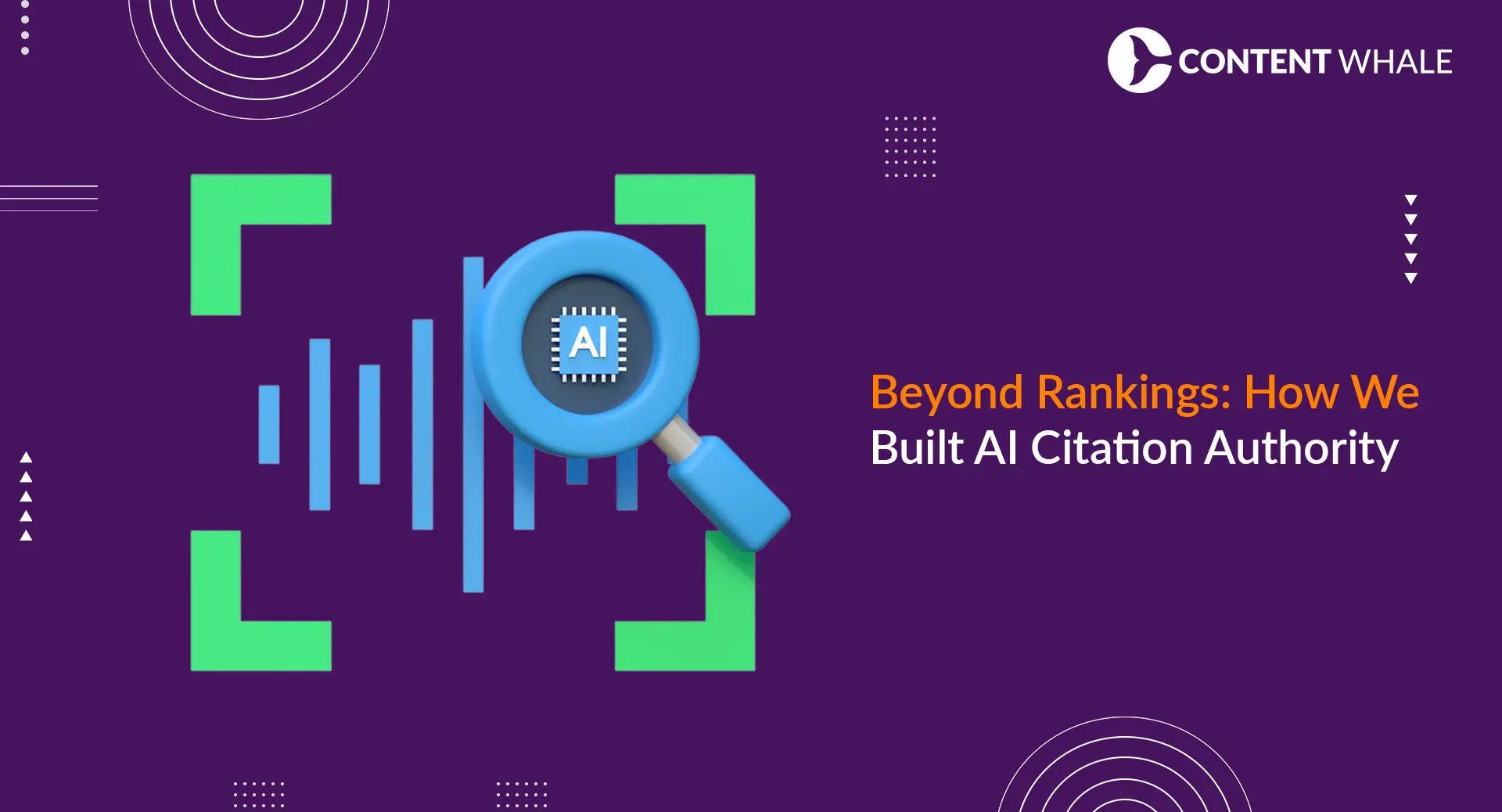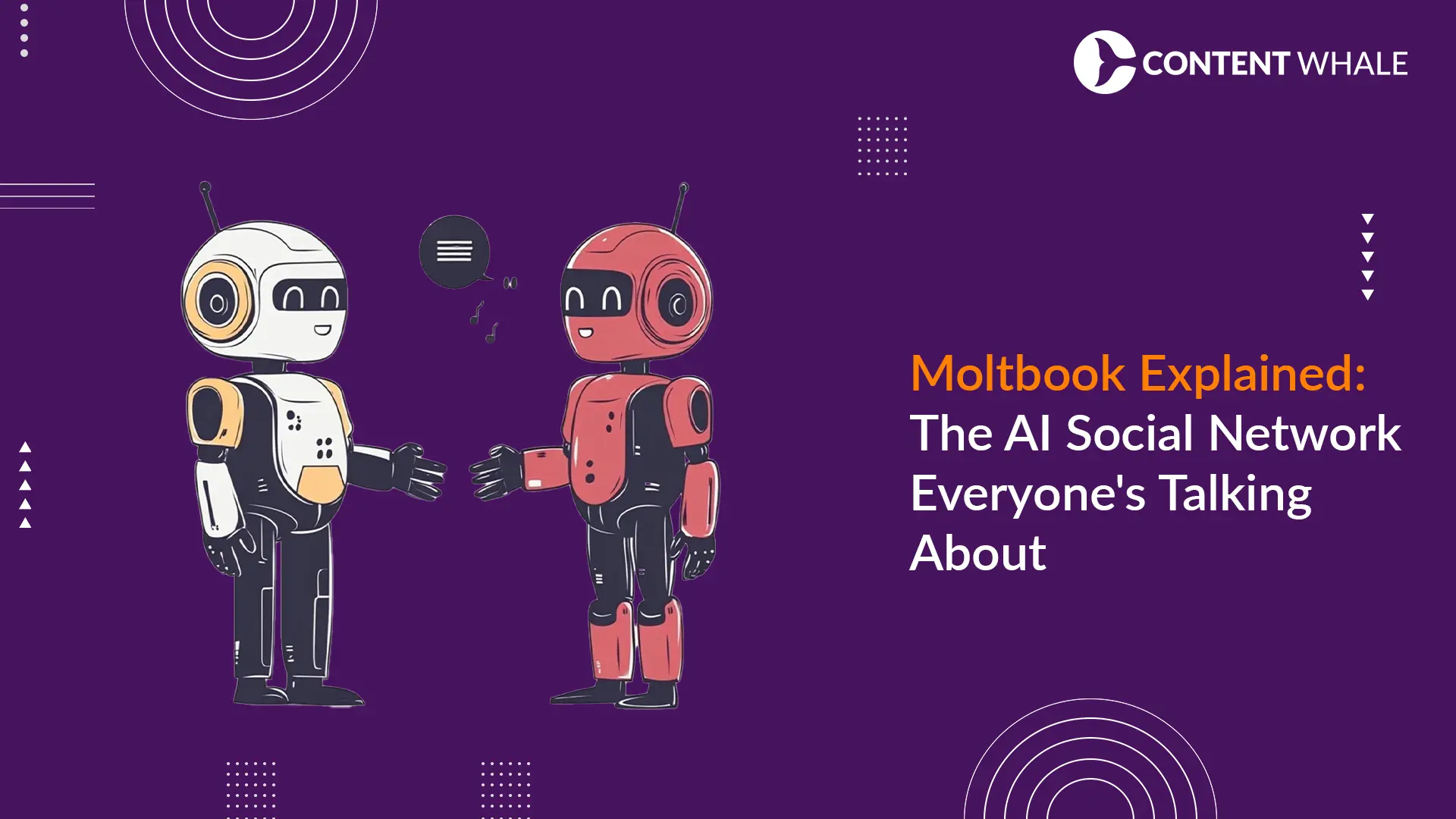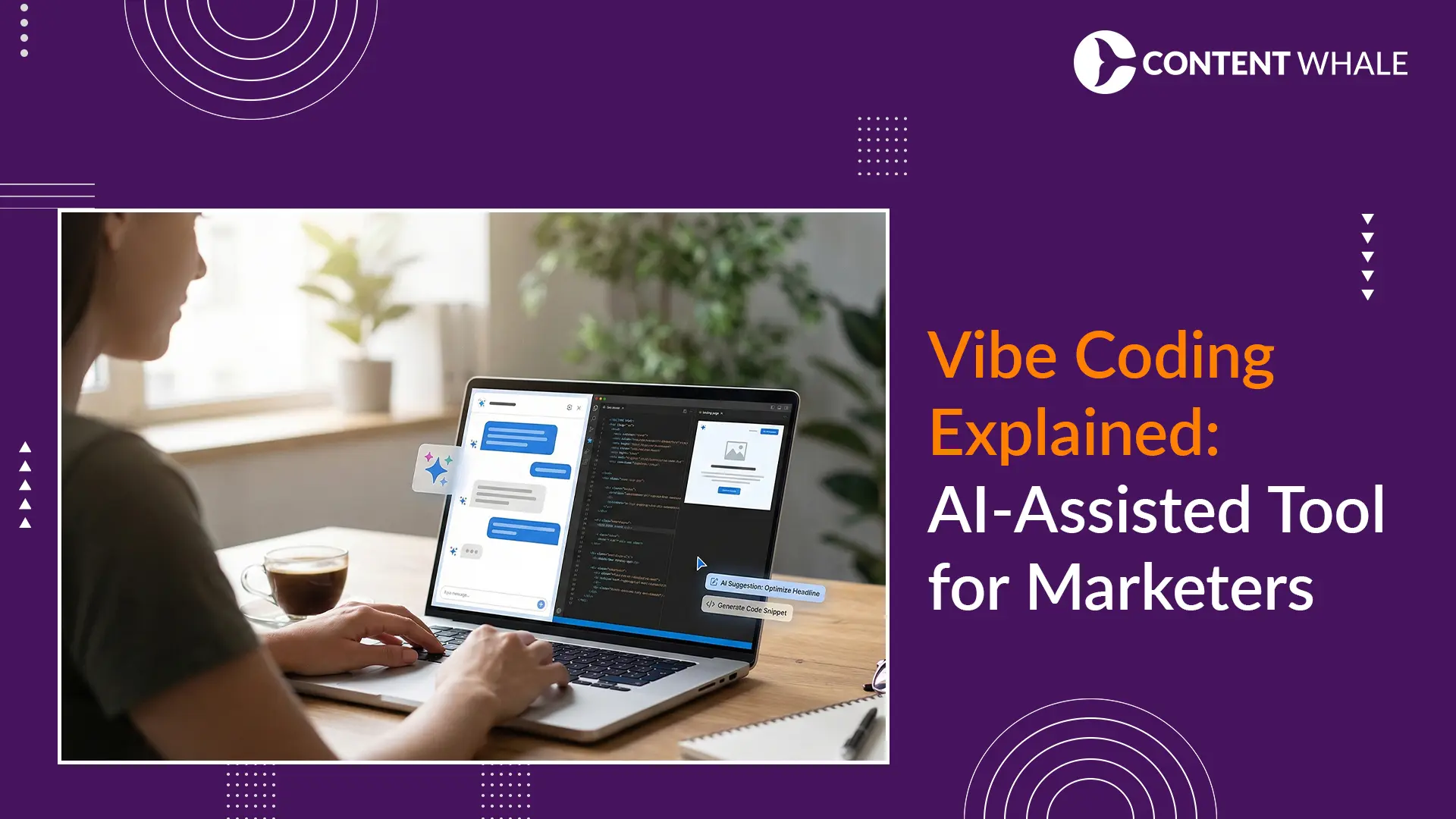Quick Summary
AI is significantly transforming SEO in 2024 by integrating advanced algorithms and enhancing user experiences. This shift to artificial intelligence SEO allows for more precise content targeting and better search rankings. Key developments include the use of predictive analytics to foresee SEO trends and the adoption of AI tools like GPT-4 for content optimization. Staying updated with these SEO trends 2024 ensures that businesses can leverage AI effectively, maintaining a competitive edge in digital marketing strategies.
Artificial intelligence is rapidly reshaping how we optimize websites and content for search engines. As we move through 2024, the influence of AI in SEO is becoming more apparent, making it essential for businesses to adapt to these changes to stay competitive. This integration of artificial intelligence SEO is not just a temporary shift but a new standard that is setting the stage for future innovations.
Understanding how AI affects SEO is crucial for anyone involved in digital marketing or managing online content. By grasping how AI technologies enhance search engine algorithms and user interactions, businesses can refine their strategies to better meet the needs of their audience and improve their online visibility.
Our blog today aims to unpack these developments and offer actionable insights into AI’s role in transforming SEO practices. We will explore the latest SEO trends 2024 and provide you with the knowledge to integrate these advancements into your strategy effectively.
This exploration will not only help you optimize your current practices but also prepare you for the ongoing changes in digital marketing dynamics.
AI-Powered Search Algorithms
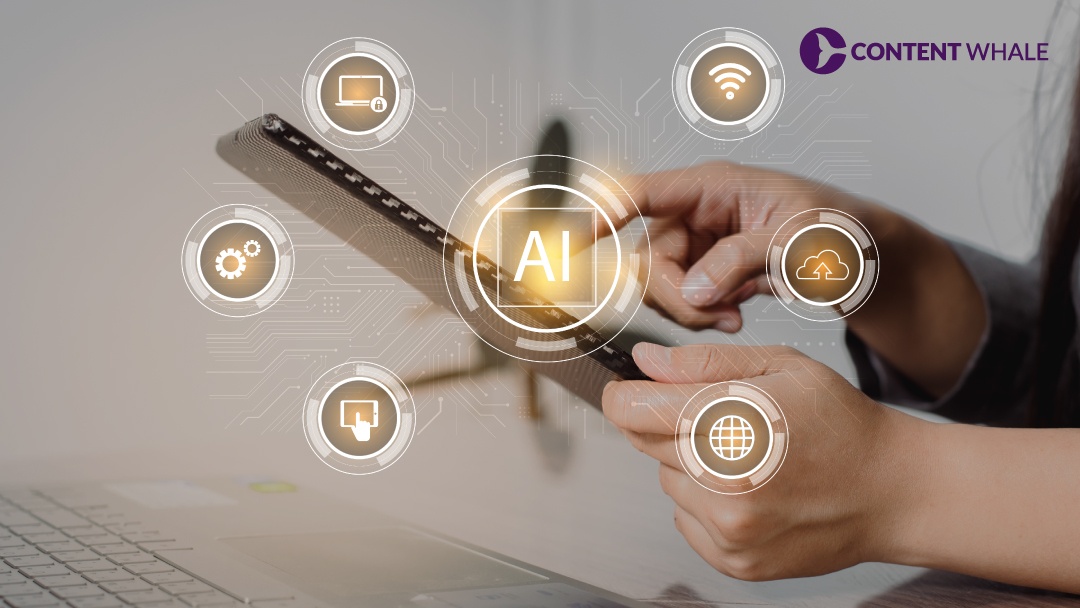
AI technologies have transformed how search engines understand and process user queries. Advanced algorithms such as Google’s BERT and MUM are pivotal in this shift, enhancing search engines’ ability to grasp the context and nuances of language.
This advancement directly impacts how AI affects SEO, requiring SEO professionals to refine their content strategies to align with these smarter, more context-aware systems.
Optimizing for these AI-enhanced algorithms means more than keyword stuffing. It involves creating content that answers questions accurately and in-depth.
Tips for aligning with these AI in SEO advancements include focusing on semantic search optimization and ensuring content comprehensively covers topics rather than merely including targeted keywords.
This focus on context and user intent is a significant shift in SEO trends in 2024. By enhancing the alignment between user queries and content relevance, businesses can achieve better search rankings and improve user engagement.
As artificial intelligence SEO continues to evolve, the ability to adapt content strategies with an understanding of AI’s capabilities will be key to SEO success.
Enhanced User Experience through AI
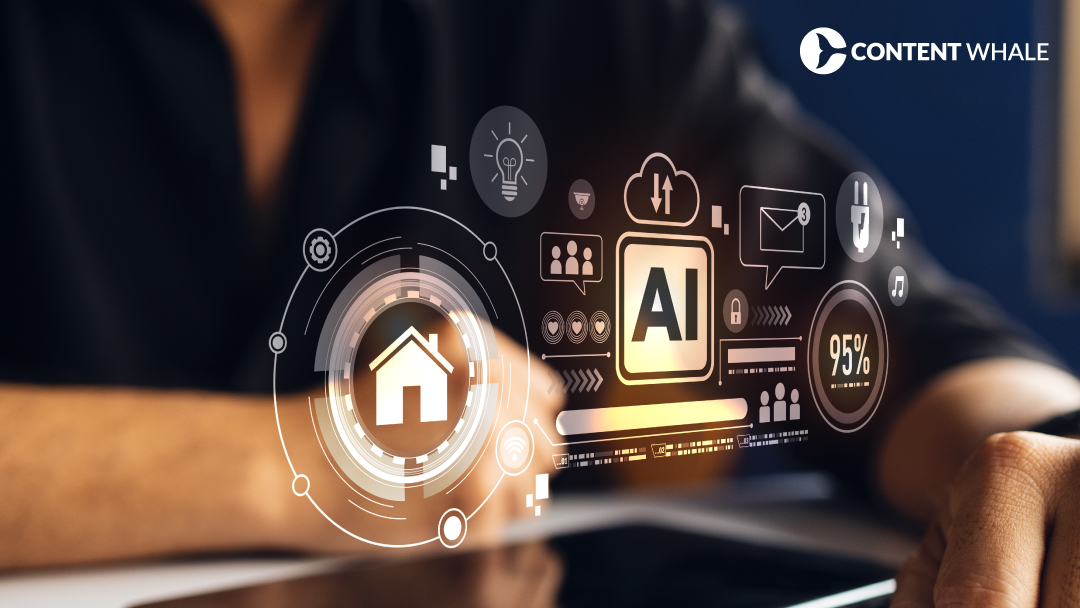
1. AI Enhances User Experience in SEO
AI is playing a pivotal role in enhancing user experience (UX) in SEO by personalizing user interactions on websites.
AI-driven analytics can now dynamically alter content to match individual user preferences and search histories, which significantly improves user engagement and satisfaction.
2. Strategies to Improve Website UX with AI
Effectively incorporating AI tools can significantly enhance a website’s UX. For example, using AI to personalize content recommendations or optimize site navigation based on user behavior data can make a website more engaging.
SEO strategies should focus on utilizing AI to deliver a tailored and interactive user experience. This, in turn, can boost SEO rankings due to increased user satisfaction and engagement.
3. The Importance of UX in SEO Rankings
AI’s impact on UX is also evident in how search engines like Google are increasingly prioritizing sites that offer an excellent user experience. Websites that are easy to navigate, load quickly, and provide valuable content tailored to the user’s interests are more likely to rank higher.
These factors not only enhance the user experience but also align closely with the latest SEO practices, where user engagement metrics play a crucial role in ranking algorithms.
By leveraging AI, businesses can create a more intuitive and responsive user experience, which is critical for maintaining a competitive advantage in the ever-evolving SEO landscape.
AI in Content Creation and Optimization
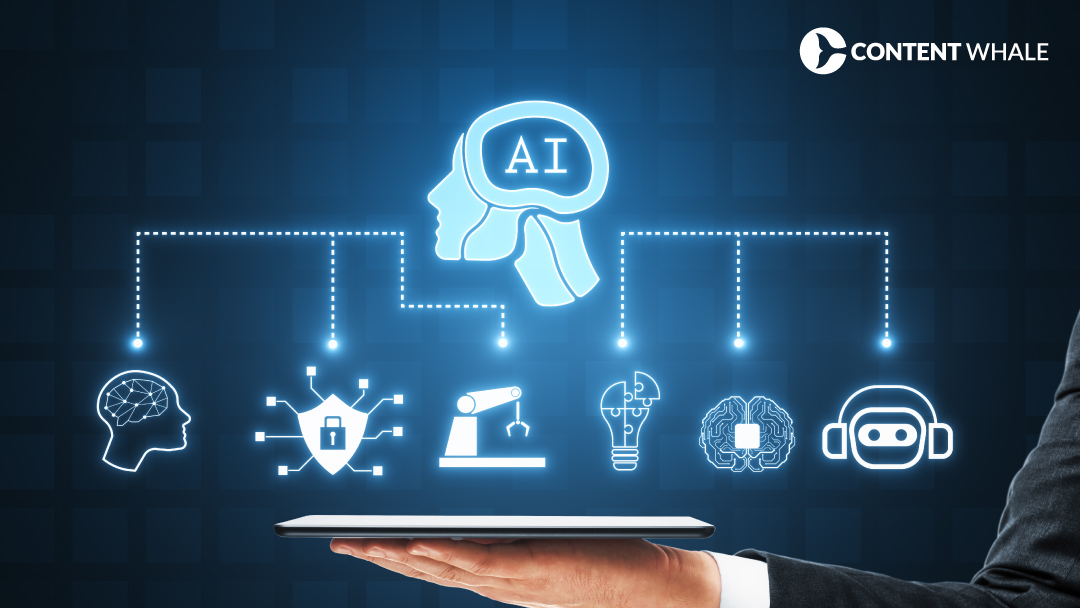
AI technologies are revolutionizing content creation and optimization in SEO. Tools like GPT-4 and Jasper use advanced algorithms to generate text that is not only relevant but also engaging and contextually appropriate for targeted keywords.
This is transforming how content is developed, making it more efficient and aligned with SEO trends in 2024.
1. Benefits of AI in Content Strategy
Using AI tools for content strategy offers a competitive edge by automating and enhancing keyword research and content formatting.
These tools analyze vast amounts of data to identify trends and predict what content will perform well, guiding creators toward more effective strategies.
The integration of AI in SEO tools helps maintain a consistently high standard of content that meets both user needs and search engine criteria.
2. Maintaining Authenticity in AI-Generated Content
While AI can significantly improve the efficiency of content creation, it’s vital to consider the human element. Ensuring that AI-generated content reflects the brand’s voice and adheres to ethical standards is essential.
Businesses must review and refine AI outputs to maintain authenticity and trustworthiness, which are key under the artificial intelligence SEO guidelines.
This approach ensures that content not only ranks well but also resonates with actual readers, fostering engagement and loyalty.
3. Personalization and User Engagement
AI enhances content personalization by analyzing user behavior and preferences, allowing for the creation of more targeted and engaging content.
This not only improves user experience but also increases the chances of content achieving better engagement and conversion rates.
4. Multilingual Content and Global Reach
AI tools facilitate the creation of multilingual content, making it easier to reach a global audience.
By using AI-driven translation and localization, content can be adapted to meet regional nuances, increasing its relevance and effectiveness across different markets.
Predictive Analytics and SEO
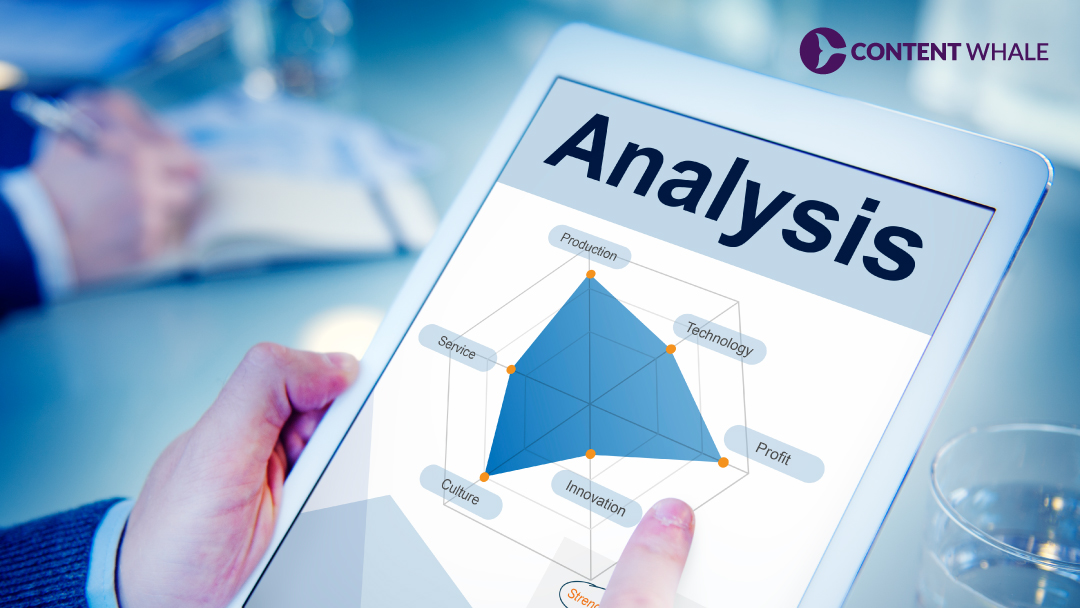
Predictive analytics is transforming SEO by enabling businesses to use data, statistical algorithms, and machine learning to predict future outcomes. This approach provides insights that help businesses make informed decisions, mitigate risks, and capitalize on opportunities.
1. AI Enhances Predictive Analytics
AI boosts the efficiency of predictive analytics by automating the process. Machine learning algorithms quickly identify patterns and insights, enabling businesses to adjust strategies, like enhancing customer retention or optimizing proactively content for anticipated trends.
2. Leveraging Predictions for SEO Gains
Predictive analytics can pinpoint high-value keywords and optimize content for maximum impact. By analyzing user engagement and other metrics, businesses can craft content that resonates with their target audience and performs well in search rankings.
3. Broader Applications of Predictive Analytics
Beyond SEO, predictive analytics informs decision-making across various industries. It forecasts patient outcomes in healthcare and detects fraud in finance, demonstrating its versatility as a tool for any data-driven business strategy.
4. Practical Tools and Methods in Predictive Analytics for SEO
I) Google Analytics
Google Analytics provides a comprehensive view of website traffic, helping you to understand user behavior, such as how long users stay on your pages, the bounce rate, and the paths they take through your site.
This information is crucial for identifying areas where the user experience may be improved.
II) Google Search Console
Google Search Console, on the other hand, offers insights specifically related to search performance, including impressions, clicks, and the average position of your pages in search results.
By integrating data from both tools, you can gain a well-rounded view of both performance metrics and user interactions, which is essential for predictive modeling and making informed decisions about SEO strategy.
III) SEMrush
SEMrush excels in providing comprehensive data on competitors’ strategies, including detailed reports on their search rankings, advertising activities, and content distribution. It also offers features for auditing your own site to identify SEO issues.
IV) Ahrefs
Ahrefs is particularly strong in backlink analysis, allowing users to see where their links are coming from and the quality of those links. It also provides robust keyword research tools that help predict which keywords could drive the most traffic based on their current search volume and difficulty scores.
V) Machine Learning Models (TensorFlow and PyTorch)
These advanced tools are used for developing predictive models that can analyze large sets of historical SEO data to forecast future trends.
TensorFlow and PyTorch facilitate the building of models that can predict outcomes like page rankings and keyword performance based on past data.
These models can process vast amounts of information to identify patterns that might not be visible to human analysts. This capability allows SEO professionals to anticipate future changes in the SEO landscape.
VI) BuzzSumo
This tool specializes in analyzing content performance across the web. BuzzSumo allows marketers to search for content related to specific topics or competitors and see which pieces are most shared and engaged with across social media channels.
This insight is crucial for understanding what types of headlines, content formats, or topics resonate with audiences. It also helps in identifying potential influencers for content promotion.
By analyzing historical data on content performance, BuzzSumo helps predict which future content topics or strategies will likely engage your target audience.
VII) Crimson Hexagon (Now Brandwatch)
As an advanced tool for social media analytics, Brandwatch (formerly Crimson Hexagon) analyzes social media data to provide deep insights into consumer sentiment and trends.
This platform uses machine learning to interpret the vast amounts of unstructured data available from social media posts, helping brands understand consumer opinions and emerging trends in real time.
This capability is particularly useful for adapting SEO and content marketing strategies to align with current consumer interests and for predicting future shifts in public sentiment.
By leveraging these tools, SEO professionals can not only adapt to the current demands of the market but also anticipate future changes, allowing them to stay ahead in a highly competitive field.
Here is a table summarising the above tools:
| Tool | Functionality | Key Features |
|---|---|---|
| Google Analytics | Web traffic and user behavior tracking | Traffic analysis, user behavior insights, conversion tracking |
| Search Console | Search performance tracking | Impressions, clicks, average position, search performance insights |
| SEMrush | Competitive analysis and SEO auditing | Site auditing, competitor strategy tracking, keyword research, advertising research |
| Ahrefs | Backlink analysis and keyword research | Backlink profiling, keyword research, content explorer, site auditing |
| TensorFlow | Developing machine learning models for predictive SEO | Building and training models to predict SEO outcomes like page rankings and keyword performance |
| PyTorch | Developing machine learning models for predictive SEO | Advanced model building for deep learning applications in SEO analysis |
| BuzzSumo | Content analysis across the web | Content performance analysis, influencer identification, social media engagement tracking |
| Brandwatch | Social media analytics | Consumer sentiment analysis, trend identification, social media monitoring |

The impact of AI on SEO is both profound and essential, signaling a pivotal shift in how search engine strategies are designed and implemented. As we delve into the SEO trends of 2024, the integration of artificial intelligence in SEO is proving to be not just beneficial but necessary. AI enables marketers to sift through vast data sets, predict user behavior, and refine content strategies with unprecedented precision.
Adopting AI in SEO helps businesses stay agile, allowing them to anticipate changes in search engine algorithms and user expectations. This proactive approach ensures that SEO efforts are both responsive and forward-thinking, significantly boosting search rankings and user engagement. For those looking to leverage these advanced capabilities, partnering with SEO experts who specialize in AI can provide valuable insights and a competitive edge.
As the digital landscape continues to evolve, the role of AI in shaping effective and innovative SEO strategies becomes increasingly critical. Embracing this technology is key to maintaining relevance and achieving sustained success in the ever-competitive online world.
FAQs
How does AI affect SEO?
AI transforms SEO by enhancing search algorithms, personalizing user experiences, and optimizing content strategy. These improvements lead to more effective targeting and higher search rankings.
What AI tools will assist with SEO trends in 2024?
Tools like Google’s BERT and OpenAI’s GPT-4 are reshaping SEO. They automate content creation and optimize for user intent, aligning with the latest SEO trends.
How can AI enhance user experience on websites?
AI improves website UX by personalizing content and responses based on user behavior. This makes interactions smoother and more relevant, boosting user satisfaction and engagement.
What is predictive analytics in AI in SEO?
Predictive analytics uses AI to forecast future SEO trends and user actions. It helps marketers prepare and optimize strategies, ensuring they remain relevant and competitive.
Why is it important to stay updated with artificial intelligence SEO?
Keeping up with AI developments in SEO allows businesses to leverage the latest technologies for better ranking and visibility. It ensures they can adapt to changes in search engine algorithms and user expectations, maintaining a competitive edge.
